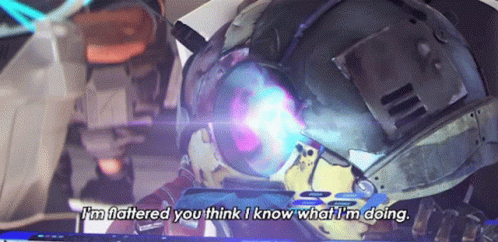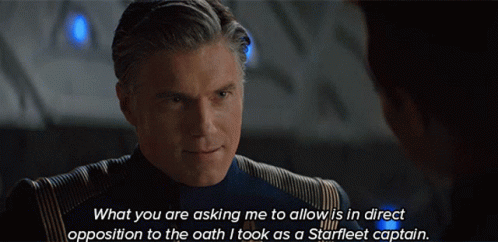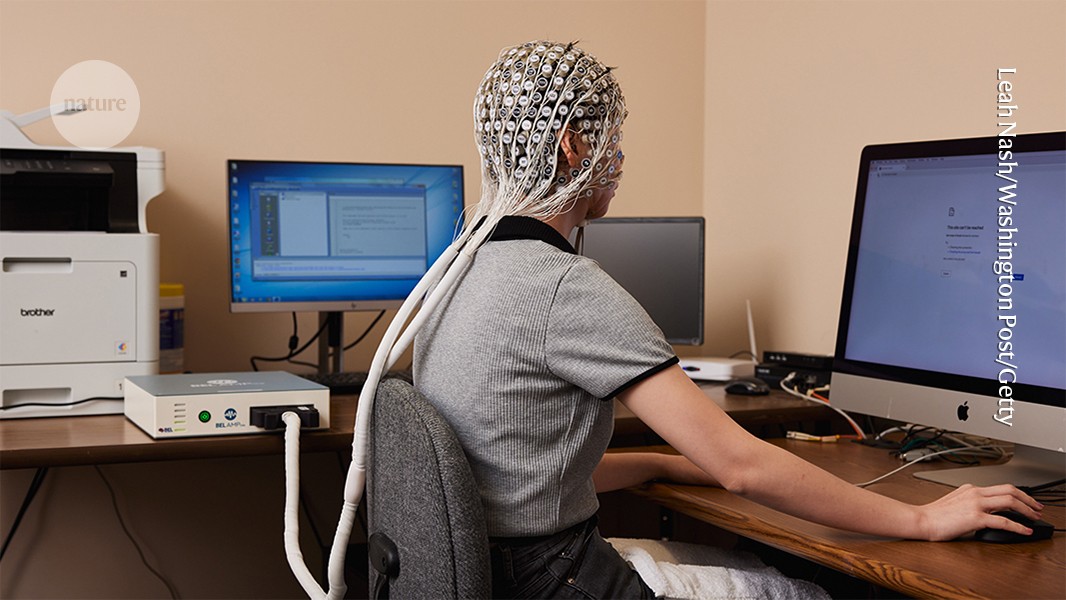Threads is nearing X's daily app users, new data shows
-
This post did not contain any content.
-
This post did not contain any content.
Doesn't every Instagram user automatically have a Threads account now? (Even if they're unaware of it.)
Meta faking Threads user count that way on top of what's happened with X user count would explain this "milestone" quite easily.
-
Doesn't every Instagram user automatically have a Threads account now? (Even if they're unaware of it.)
Meta faking Threads user count that way on top of what's happened with X user count would explain this "milestone" quite easily.
That doesn’t count against daily users. The teasers in instagram are so bad that I just refuse to install another fucking app to pickle my brain faster. I’ll be over here huffing farts like it’s 2006 thanks
-
This post did not contain any content.
Threads is weird, maybe because I'm not used to the Twitter-like format. Posting is fast like Lemmy (not surprising since it shares the Fediverse infrastructure). Replies are harder to read since it's one level nested. There's no downvotes.
Anyone can choose to tag any post or comment as any topic, like Twitter but hashtags don't appear to be needed. Images and gifs are well supported by default, but it doesn't support alt-text for accessibility.
The default feed is heavily bot-laden worth thirst-traps and AI women. You need to find actual people and follow them for recommendations for other real people to start to show up in the default feed which is a bit annoying. You end up with a social circle like in Facebook but they are complete strangers unless you accept recommendations from any Instagram contacts you know in real life. You need to turn off linking between Threads and Instagram (on both applications) if you want to keep them separate, it's opt-out.
Political discussions are toxic; this is unsurprising. Lots of MAGA trash, but not Nazi-laden like X (formerly Twitter). Arguments with them are unfruitful.
The meme game is incredibly weak compared to here (thanks PugJesus, The_Picard_Maneuver, cm0002, Stamets, LadyButterfly, Track_Shovel, etc.). Lemmy has an incredible amount of fantastic memes for it's size.
There are of course ads but they aren't as obnoxious as Facebook ads. No doubt Meta is data mining the hell out of your content.
Since there's millions of people (if they aren't conflating with Instagram users) it's incredibly active. That part is nice but you also get the stupidity and ignorance from Facebook-like users; this is where curating your follows is important.
-
This post did not contain any content.
because it's mostly just influencers and brands.
-
Threads is weird, maybe because I'm not used to the Twitter-like format. Posting is fast like Lemmy (not surprising since it shares the Fediverse infrastructure). Replies are harder to read since it's one level nested. There's no downvotes.
Anyone can choose to tag any post or comment as any topic, like Twitter but hashtags don't appear to be needed. Images and gifs are well supported by default, but it doesn't support alt-text for accessibility.
The default feed is heavily bot-laden worth thirst-traps and AI women. You need to find actual people and follow them for recommendations for other real people to start to show up in the default feed which is a bit annoying. You end up with a social circle like in Facebook but they are complete strangers unless you accept recommendations from any Instagram contacts you know in real life. You need to turn off linking between Threads and Instagram (on both applications) if you want to keep them separate, it's opt-out.
Political discussions are toxic; this is unsurprising. Lots of MAGA trash, but not Nazi-laden like X (formerly Twitter). Arguments with them are unfruitful.
The meme game is incredibly weak compared to here (thanks PugJesus, The_Picard_Maneuver, cm0002, Stamets, LadyButterfly, Track_Shovel, etc.). Lemmy has an incredible amount of fantastic memes for it's size.
There are of course ads but they aren't as obnoxious as Facebook ads. No doubt Meta is data mining the hell out of your content.
Since there's millions of people (if they aren't conflating with Instagram users) it's incredibly active. That part is nice but you also get the stupidity and ignorance from Facebook-like users; this is where curating your follows is important.
Lol don't forget @LadyButterfly@piefed.blahaj.zone!

-
Lol don't forget @LadyButterfly@piefed.blahaj.zone!

Thanks added!
-
Threads is weird, maybe because I'm not used to the Twitter-like format. Posting is fast like Lemmy (not surprising since it shares the Fediverse infrastructure). Replies are harder to read since it's one level nested. There's no downvotes.
Anyone can choose to tag any post or comment as any topic, like Twitter but hashtags don't appear to be needed. Images and gifs are well supported by default, but it doesn't support alt-text for accessibility.
The default feed is heavily bot-laden worth thirst-traps and AI women. You need to find actual people and follow them for recommendations for other real people to start to show up in the default feed which is a bit annoying. You end up with a social circle like in Facebook but they are complete strangers unless you accept recommendations from any Instagram contacts you know in real life. You need to turn off linking between Threads and Instagram (on both applications) if you want to keep them separate, it's opt-out.
Political discussions are toxic; this is unsurprising. Lots of MAGA trash, but not Nazi-laden like X (formerly Twitter). Arguments with them are unfruitful.
The meme game is incredibly weak compared to here (thanks PugJesus, The_Picard_Maneuver, cm0002, Stamets, LadyButterfly, Track_Shovel, etc.). Lemmy has an incredible amount of fantastic memes for it's size.
There are of course ads but they aren't as obnoxious as Facebook ads. No doubt Meta is data mining the hell out of your content.
Since there's millions of people (if they aren't conflating with Instagram users) it's incredibly active. That part is nice but you also get the stupidity and ignorance from Facebook-like users; this is where curating your follows is important.
Thanks Gork! I'm passionate about spreading meme joy on lemmy.
@The_Picard_Maneuver@lemmy.world @PugJesus@lemmy.dbzer0.com @Stamets@lemmy.world @cm0002@lemmy.world it is an honour to serve with you.
-
Thanks Gork! I'm passionate about spreading meme joy on lemmy.
@The_Picard_Maneuver@lemmy.world @PugJesus@lemmy.dbzer0.com @Stamets@lemmy.world @cm0002@lemmy.world it is an honour to serve with you.

-
Threads is weird, maybe because I'm not used to the Twitter-like format. Posting is fast like Lemmy (not surprising since it shares the Fediverse infrastructure). Replies are harder to read since it's one level nested. There's no downvotes.
Anyone can choose to tag any post or comment as any topic, like Twitter but hashtags don't appear to be needed. Images and gifs are well supported by default, but it doesn't support alt-text for accessibility.
The default feed is heavily bot-laden worth thirst-traps and AI women. You need to find actual people and follow them for recommendations for other real people to start to show up in the default feed which is a bit annoying. You end up with a social circle like in Facebook but they are complete strangers unless you accept recommendations from any Instagram contacts you know in real life. You need to turn off linking between Threads and Instagram (on both applications) if you want to keep them separate, it's opt-out.
Political discussions are toxic; this is unsurprising. Lots of MAGA trash, but not Nazi-laden like X (formerly Twitter). Arguments with them are unfruitful.
The meme game is incredibly weak compared to here (thanks PugJesus, The_Picard_Maneuver, cm0002, Stamets, LadyButterfly, Track_Shovel, etc.). Lemmy has an incredible amount of fantastic memes for it's size.
There are of course ads but they aren't as obnoxious as Facebook ads. No doubt Meta is data mining the hell out of your content.
Since there's millions of people (if they aren't conflating with Instagram users) it's incredibly active. That part is nice but you also get the stupidity and ignorance from Facebook-like users; this is where curating your follows is important.
The meme game is incredibly weak compared to here (thanks PugJesus, The_Picard_Maneuver, cm0002, Stamets, LadyButterfly, etc.). Lemmy has an incredible amount of fantastic memes for it’s size.
I'd like to echo this. My entire knowledge of meme culture is supported by these diligent individuals.
I'll also add the prior work of @FlyingSquid@lemmy.world . Miss you, squid. Hope you're doing well in your new home.
-
That doesn’t count against daily users. The teasers in instagram are so bad that I just refuse to install another fucking app to pickle my brain faster. I’ll be over here huffing farts like it’s 2006 thanks
How do you know it doesn’t count against daily active users?
No one I know uses threads. When I tried it and followed the same public people I do on Twitter, their posts on threads had like 1% of the likes/shares/comments they had on Twitter.
Meta would absolutely lie to make threads seem more active than it is to try and get people to use it.
-
This post did not contain any content.
How’s Threads anyway? Once I heard they don’t allow you to simply delete your account, I noped out of it.
Not sure if it is true but apparently if you want to delete your account, it’ll also delete your Instagram account?
-
Threads is weird, maybe because I'm not used to the Twitter-like format. Posting is fast like Lemmy (not surprising since it shares the Fediverse infrastructure). Replies are harder to read since it's one level nested. There's no downvotes.
Anyone can choose to tag any post or comment as any topic, like Twitter but hashtags don't appear to be needed. Images and gifs are well supported by default, but it doesn't support alt-text for accessibility.
The default feed is heavily bot-laden worth thirst-traps and AI women. You need to find actual people and follow them for recommendations for other real people to start to show up in the default feed which is a bit annoying. You end up with a social circle like in Facebook but they are complete strangers unless you accept recommendations from any Instagram contacts you know in real life. You need to turn off linking between Threads and Instagram (on both applications) if you want to keep them separate, it's opt-out.
Political discussions are toxic; this is unsurprising. Lots of MAGA trash, but not Nazi-laden like X (formerly Twitter). Arguments with them are unfruitful.
The meme game is incredibly weak compared to here (thanks PugJesus, The_Picard_Maneuver, cm0002, Stamets, LadyButterfly, Track_Shovel, etc.). Lemmy has an incredible amount of fantastic memes for it's size.
There are of course ads but they aren't as obnoxious as Facebook ads. No doubt Meta is data mining the hell out of your content.
Since there's millions of people (if they aren't conflating with Instagram users) it's incredibly active. That part is nice but you also get the stupidity and ignorance from Facebook-like users; this is where curating your follows is important.
-
Thanks Gork! I'm passionate about spreading meme joy on lemmy.
@The_Picard_Maneuver@lemmy.world @PugJesus@lemmy.dbzer0.com @Stamets@lemmy.world @cm0002@lemmy.world it is an honour to serve with you.
-

-
This post did not contain any content.
Real life people use Threads !? I guess that speaks more to Twitter's decline than Threads' success that the numbers are getting close...
-
Doesn't every Instagram user automatically have a Threads account now? (Even if they're unaware of it.)
Meta faking Threads user count that way on top of what's happened with X user count would explain this "milestone" quite easily.
Doesn't every Instagram user automatically have a Threads account now?
To my knowledge, no. They just have a 1-click on-boarding process that you're constantly harrassed about doing.
-
because it's mostly just influencers and brands.
And bots. Don't forget the bots.
-
How’s Threads anyway? Once I heard they don’t allow you to simply delete your account, I noped out of it.
Not sure if it is true but apparently if you want to delete your account, it’ll also delete your Instagram account?
How would they even have that ability?










